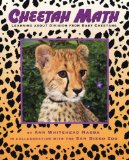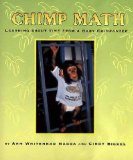Pragmatic Mom’s oldest child is a visual learner so combining picture books with math concepts was a great way for her to get an intuitive feel for math. Here’s some books we’ve enjoyed. If you want to purchase any of the them, please click on the image of the book to buy at Amazon.com.
Alexander, Who Used to be Rich Last Sunday by Judith Viorst and Ray Cruz. A funny story about a boy whose allowance burns a hole in his pocket. Currency and subtraction are imbedded into the story. [ages 4-9]
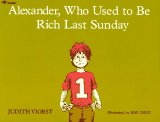
Chicka, Chicka 123 by Bill Martin Jr., Michael Sampson and Lois Ehlert. Sequel to Chicka Chicka ABC, this book is perfect for a child learning to count to 100. W use the front and back inside covers to count to 100, count by 10’s, and count by 5’s. It’s also fun to point out patterns because the numbers are wonderfully color coded as in, hey look how all the numbers in this column end in the number 2! [ages 2-7]

Telling the Time by Heather Amery. My five-year-old loves to move the hands of the clock. It has taught him analog time by the hour and it also has one page to the half hour. [ages 3-6]

Clocks and More Clocks by Pat Hutchins. This is a good book to see if your child understands how to apply telling time to a real life situation. There are different analog times displayed throughout the book in different ways from on the hour, to the half hour, etc. You can just read the book and enjoy the story, but you can also use this book to practice telling the time. [ages 4-8]

Ninety-Three in My Family by Erica S. Perl. A really run rhyming book that is also a great story book . You can sneak math in by counting the 93 members of the family using the handy chart in the back. Her website has other games and activities incorporating math with her book. [ages 3-7]

Chimp Math: Learning About Time from a Baby Chimpanzee by Ann Whitehead Nagda.

Minnie’s Diner: A Multiplying Menu by Dayle Ann Dodds and John Manders. The story is so fun that your child doesn’t even realize that s/he is being exposed to the concept of multiplication. [ages 4-8]

The Grapes of Math by Greg Tang. Mind stretching math riddles for kids that can visualize math in their heads. Perfect for kids learning multiplication and skip counting. [ages 5-9]

The Monster Money Book by Loreen Leedy. Perfect for budding entrepreneurs as well as kids learning how to handle their allowance. [ages 4-9]

Mission Addition by Loreen Leedy. A visual presentation of addition, perfect for little ones. [ages 3-7]
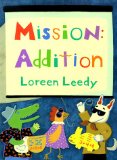
Fraction Action by Loreen Leedy. Fractions are presented in a visual and easy-to-understand way. [ages 5-8]
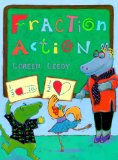
Panda Math: Learning About Subtraction from Hua Mei and Mei Sheng by Ann Whitehead Nagda.

Polar Bear Math: Learning About Fractions from Klondike and Snow by Ann Whitehead Nagda.
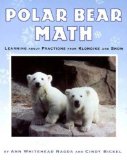
Cheetah Math: Learning About Division from Baby Cheetahs by Ann Whitehead Nagda.

Tiger Math: Learning to Graph from a Baby Tiger by Ann Whitehead Nagda.
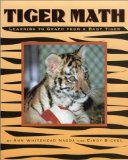
How Much is a Million? by David M. Schwartz and Steven Kellogg. It can be hard to describe large numbers to little ones and this book does a great job teaching the concept of a million. [ages 4-7]

A Grain of Rice by Helena Clare Pittman. A novel about how a humble farmer is rewarded with a single grain of rice which is doubled every day for 100 days. A great way to learn about exponential growth…and then talk about this can apply things like saving money! [ages 7-10]



